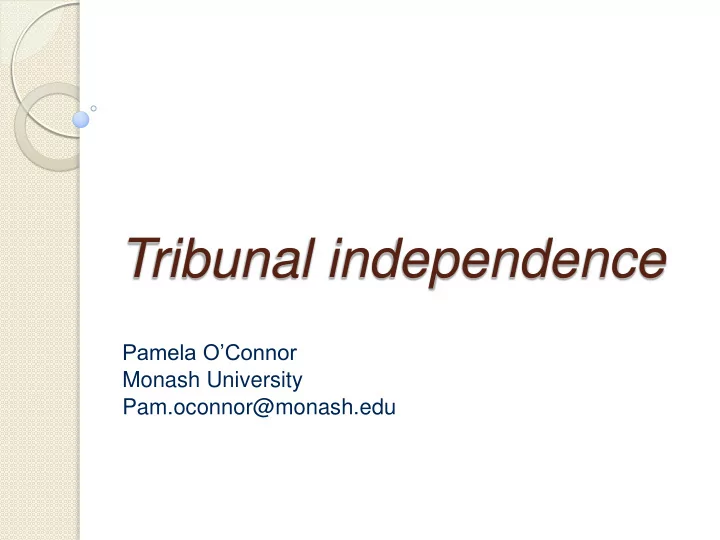

Tribunal independence Pamela O’Connor Monash University Pam.oconnor@monash.edu
Questions about tribunal independence What is it? Why does it matter? Is it under threat, and from whom? Is it part of judicial independence? How can you tell if a tribunal is independent? Who or what determines whether a tribunal is independent?
Tribunals in the system of government
Adjudication and impartiality Adjudication is a ‘triad’ relationship in which two parties submit a dispute for decision by a third party (Shapiro) The adjudicator decides by making findings of fact and applying the law to the facts as found (Cane) Human rights, the rule of law, natural justice, public opinion and ‘the logic of adjudication’ all demand that adjudicators are impartial.
Impartiality: actual and perceived Impartiality is the ability to decide according to the adjudicator’s own assessment of the evidence, the law and the merits, free of pressure or influence consider extraneous matters. It is ‘a characteristic of a reasoning process or state of mind’. (Cane) Perceptions matter because they affect trust and because impartiality is difficult to measure. (Parker)
Independence Is about the institutional and societal norms that maintain impartiality and perceptions of impartiality Institutional norms are formal (eg legislation, guidelines) and informal (eg conventions, practices). They are more easily adjusted by deliberate action than societal norms, and may affect perception of impartiality.
Why independence matters
Independence and effective adjudication
Administrative independence: the tribunal as an entity
Institutional independence: the members
Adjudicative independence: the tribunal in operation
Legislating for independence Develop scale with areas, indicators and examples across a spectrum of weaker to stronger. What institutional features of independence does SACAT have? How useful is this model in assessing and the extent of SACAT’s independence?
Recommend
More recommend